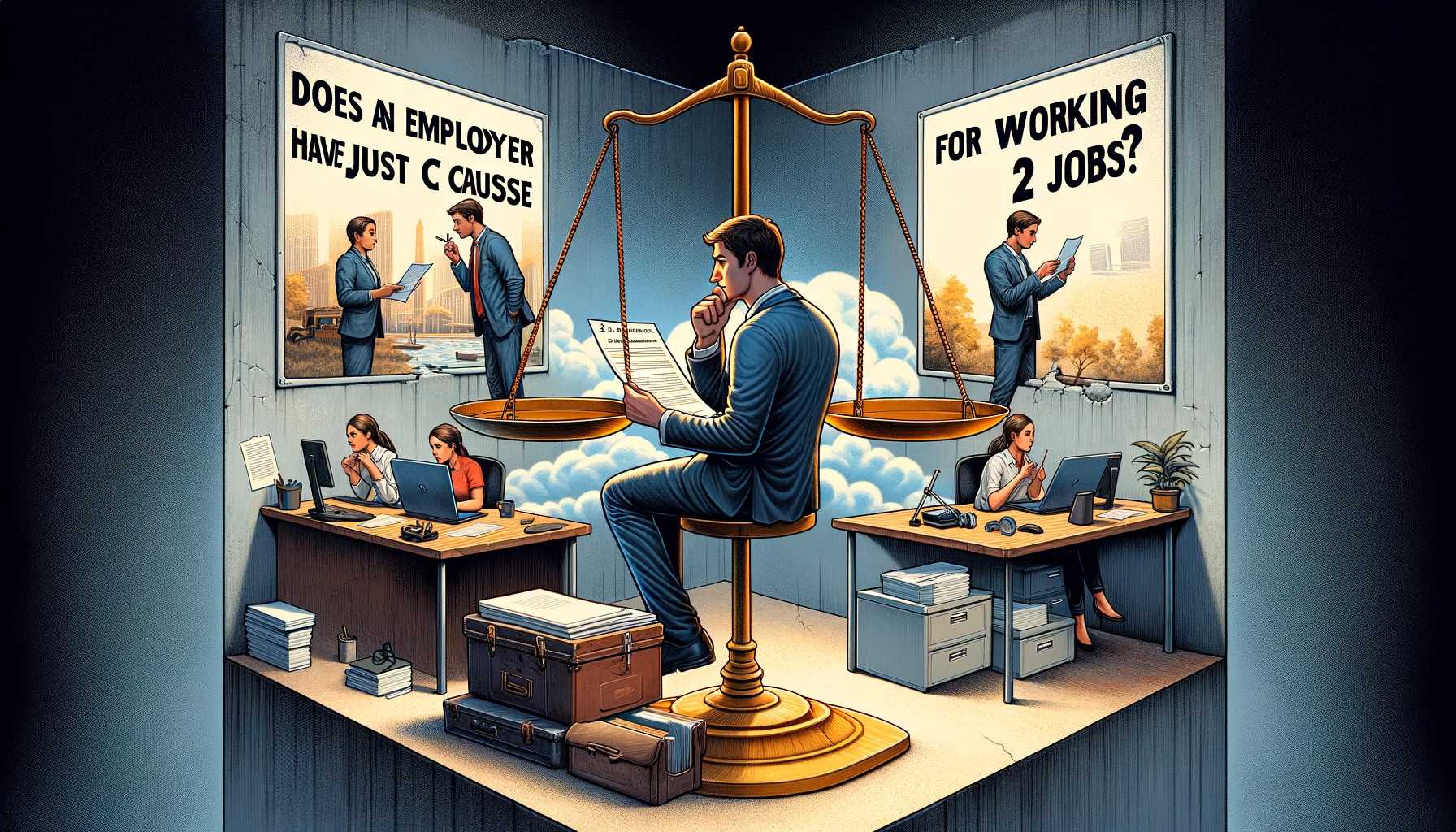Does an Employer Have Just Cause to Fire an Employee for Working 2 Jobs
Suppose a employment contract or company policies explicitly prohibit employees from holding second jobs or engaging in activities that might conflict with their primary employment. In that case, the company may have grounds to terminate the employee if they violate these terms.
That said, multiple employment or "moonlighting" is by no means rare. Just under 80% of remote employees have had at least two jobs simultaneously, 2023 data shows. According to a survey of 1,272 remote employees by ResumeBuilder, more than a third had at least two full-time jobs. Most of them were earning six-figure salaries. 73% of those surveyed said they had worked for a tech company in the six months prior to the survey.
Most of the respondents who had more than one full-time job worked in IT, sales, or another field that typically allows flexible working hours.
Conflict of Interest
When is moonlighting a problem? If the second job poses a conflict of interest with the employee's primary job, such as working for a competitor, the employer may have just cause to terminate the employee. Time tracking can reveal discrepancies between time worked and paid, but it's important to invest in a quality, reliable tracking system for accurate results.
Performance and availability
If the second job affects the employee's performance or availability for their primary job, leading to issues such as absenteeism, tardiness, or decreased productivity, the employer may have grounds for termination based on poor performance. 52% of survey respondents said it was "somewhat difficult" to balance multiple jobs.
On the other hand, it was "somewhat easy" for almost a quarter of them. 15% said it was very easy, and 10% said it was very difficult. 26% of people with two jobs worked 30 to 40 hours a week, followed by 23% working 40 to 50 hours and 22% with a 50 to 60 hour work week.
Violation of company policies
If the employee's second job violates specific company policies, such as noncompete or confidentiality agreements, the employer could have just cause to terminate the employee. Noncompete agreements limit workers from starting a competing firm or seeking employment with one. While they help businesses protect confidential information, they can lead to lower wages and less job mobility.
Historically, companies have used these agreements for executives and highly skilled employees who may have access to trade secrets. However, employers surveyed by the US Government Accountability Office (GAO) in 2023 reported having hourly workers sign them too. Lower wage employees are highly unlikely to have access to such secrets.
According to two nationally representative studies reviewed by GAO, 18% of employees had to sign noncompete agreements, and 38% had to sign one at one point. More than 50% of 446 private sector employers said that such agreements were in place for some of their staff. More than 70% of respondents who used noncompete agreements reported some of their hourly workers were subject to such.
Legal considerations
In some jurisdictions, there may be legal restrictions on an employer's ability to terminate an employee for engaging in legal activities outside of work, including holding a second job. Employers must ensure that their actions comply with relevant employment laws and regulations.
Communication and transparency
Employers should communicate clearly with employees about any policies or expectations regarding second jobs or potential conflicts of interest. Providing employees with an opportunity to discuss and address concerns before taking disciplinary action can help mitigate misunderstandings and potential legal issues.
Most employees get caught
The majority of employees who work two jobs illegally say it is "somewhat difficult" to hide the fact from their employers. 25% say it is a little difficult, but it is or was very difficult for 15%. 7% say it is easy.
However, 63% said their employer found out in the past year. Of this group, 58% were fired in the past year because their employer found out they were moonlighting.
Ultimately, whether an employer has just cause to fire an employee for working two jobs will depend on the specific circumstances and applicable legislation in the jurisdiction. Employees should seek legal advice if they are worried about employment termination related to second jobs or other outside activities.









